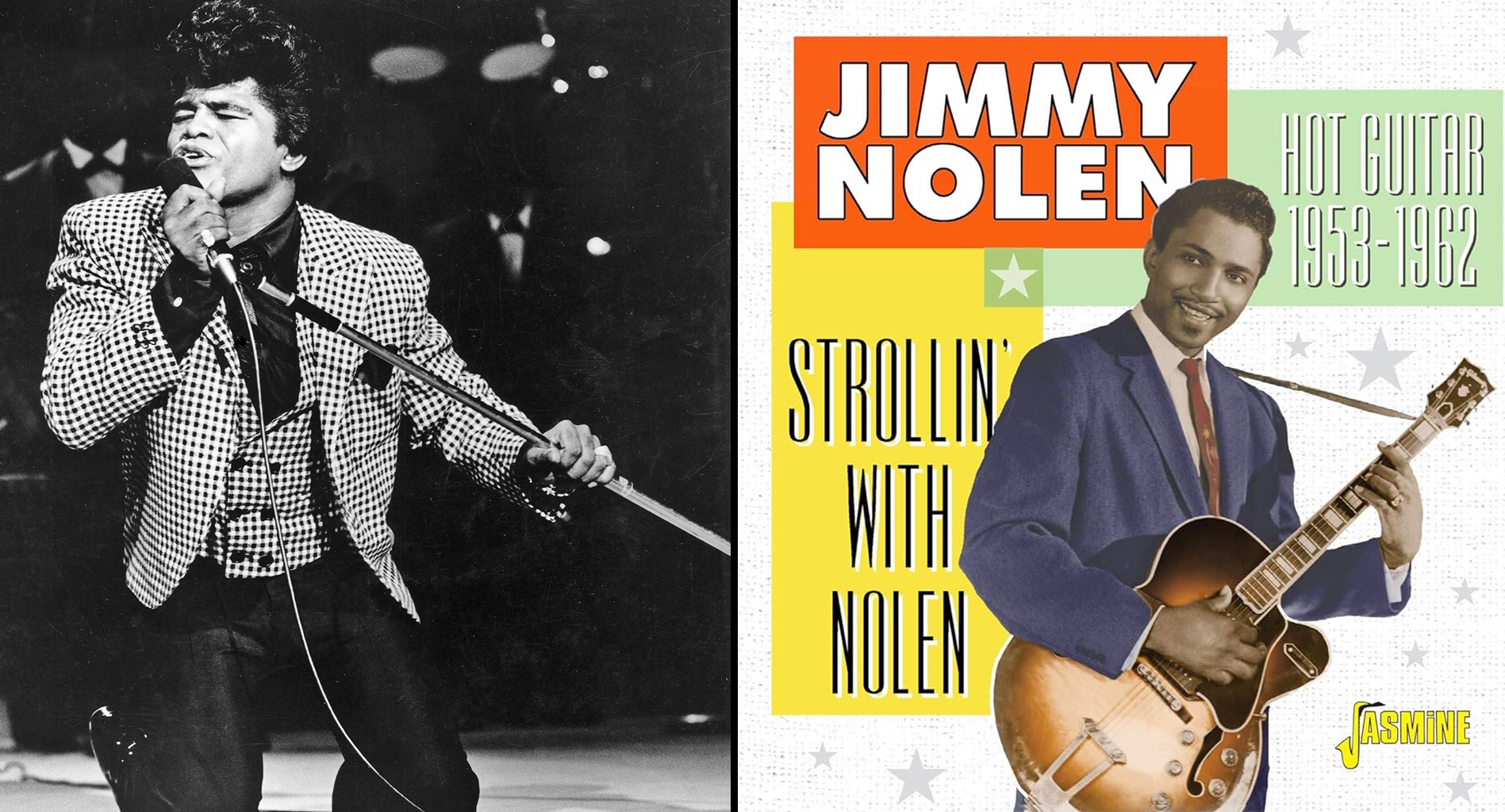“I don’t think you can overestimate the influence of his sound”: The unsung guitarist who transformed James Brown’s music, and laid a funky path for Nile Rodgers, John Frusciante, Cory Wong and countless others
Overshadowed by the flamboyant frontman for whom he worked, Jimmy Nolen created a singular rhythm style that can still be heard all over pop and rock radio today

All the latest guitar news, interviews, lessons, reviews, deals and more, direct to your inbox!
You are now subscribed
Your newsletter sign-up was successful
Though he was primarily a singer and entertainer onstage (one of the best in popular music history, mind), James Brown was a well-rounded musician, with a crystal-clear vision of how his endlessly energetic songs should be presented. Famously, Brown would fine his band members for – among other offenses – playing a single wrong note onstage.
With that in mind, Soul Brother No. 1, as he was known, rightfully gets a lot of the credit for the transformation of his sound in the mid-'60s – from up-tempo R&B shouters and show-stopping, soulful ballads to something new entirely; a minimalist style that leaned on lock-step grooves. It would come to be known as funk.
One name that often gets overlooked in the development of the genre, though, is Brown's electric guitar player at the time, Jimmy Nolen.
Already an R&B veteran – with years of experience in R&B star Johnny Otis's band – by the time he teamed up with Brown in 1965, Nolen immediately made his mark with the singer on the very first song he recorded with Brown, the epochal Papa's Got a Brand New Bag. Immediately after the song's first verse, Nolen scratches out a sizzling, unaccompanied one-chord break.
Rarely has a single chord been so influential.
Though he never achieved stardom in his own right, Jimmy Nolen's innovations can be heard just about everywhere today.
Steve Allsworth, Guitar World contributor and author of the lesson book 100 Essential Funk Grooves for Guitar, says of Nolen, “He developed a combination of several important funk techniques that we take for granted nowadays: his infamous ‘chicken scratch’ sound – where the fret hand lightly muted the strings – smaller chord voicings that targeted the higher strings, the high treble sound from his Fender Twin, and plenty of ‘in the pocket’ 16th-note strummed rhythms.”
All the latest guitar news, interviews, lessons, reviews, deals and more, direct to your inbox!
Though Papa's Got a Brand New Bag remains the anchor of his legacy as a player, it's but one of the many electrifying, hugely innovative parts that Nolen laid down with Brown before his untimely death in 1983.
Allsworth, for instance, points to Nolen's slinky single-note line in Brown's Give It Up Or Turn It Loose as an equally seismic moment in the development of funk.
“It’s such a great lesson in pocket, precision and discipline,” Allsworth tells us. “I don’t think you can overestimate the influence of this sound – without it there wouldn’t be Nile Rodgers, David Williams, or the countless single-note lines of funk guitarists from the '60s to the present day.”
For another fine example of Nolen's fretwork, Ella Feingold – a Guitar Player lesson columnist and funk guitar specialist who Prince once deemed, well, “too funky” – also points to a less ubiquitous recording, in this case, the instrumental Popcorn With A Feeling.
“A lot of people associate him with the 9th chord on tunes like Papa’s Got a Brand New Bag, which I’m sure was influenced by T-Bone Walker,” Feingold tells Guitar World. As for what was unique to Nolen though, Feingold cites his “touch and his staccato stroke with single-note playing.
“He had a way of using lots of ghost strokes and in-between (not fully fretted nor pitchless) notes to create this percussive color that's unique to him alone.”
Aside from his illustrious, decades-long career with Chic – and as a first-call session guitarist and producer – Nile Rodgers is particularly well-known among younger audiences for bringing old-school funk guitar á la Nolen back to the upper echelons of the charts via his work on Daft Punk's inescapable 2013 mega-hit, Get Lucky.
Rodgers has been quick to acknowledge his debt to Nolen in interviews, telling Rolling Stone with a laugh in 2011, “I mean, come on. Listen to me stealing from Jimmy on [Duran Duran's] Notorious.”
One can also draw a fairly straight line from Nolen's chicken scratching to the playing of Vulfpeck's Cory Wong, and the funkier side of John Frusciante's work with the Red Hot Chili Peppers – just listen to the intro of the latter band's 1991 smash, Give it Away.
Nolen's name rarely comes up when the titans of '60s guitar are discussed, but guitarists have just as much to take away from his playing with Brown as they do from the flashiest, most finger-twisting of guitar solos.
Studying Nolen, Feingold tells us, “will teach you the musical generosity to play just enough of what needs to be there without taking up too much musical space, while allowing others to find their space. It will teach you a lot about your technique and stamina, and make you re-examine your approach.
“For instance, can you play along to the seven-minute version of Ain’t It Funky Now without your wrist or forearm burning? Do you have the musical humility and maturity to just stay on that part without interjecting other things?”
Citing a pearl of wisdom from another funk guitar icon, Feingold continues, “Prince said something to the effect of, ‘No-one wants to hear you solo if your rhythm isn’t good,’ and I think spending a day with Jimmy Nolen’s playing will get your rhythm tight, clean, focused, and driving like a freight train so that any note you choose will feel good – and isn’t that what we all want? To feel good?”
Jackson is an Associate Editor at GuitarWorld.com. He’s been writing and editing stories about new gear, technique and guitar-driven music both old and new since 2014, and has also written extensively on the same topics for Guitar Player. Elsewhere, his album reviews and essays have appeared in Louder and Unrecorded. Though open to music of all kinds, his greatest love has always been indie, and everything that falls under its massive umbrella. To that end, you can find him on Twitter crowing about whatever great new guitar band you need to drop everything to hear right now.




